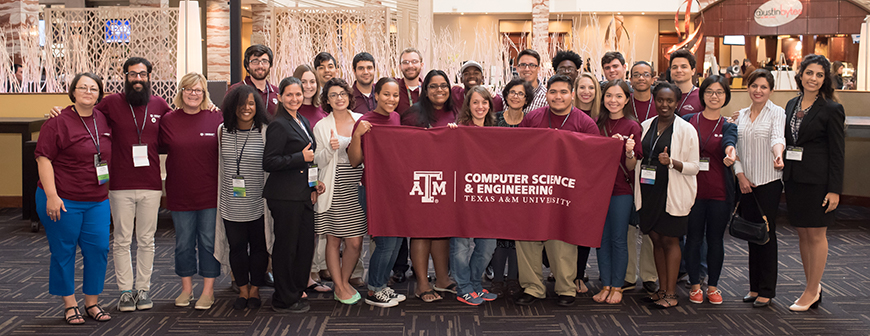
We celebrate more than 35 years as a department within the College of Engineering at Texas A&M University. Our degree program goes back to the presentation of the first master's degree in 1964 when computer science was an established division of the Wm Michael Barnes ’64 Department of Industrial and Systems Engineering. We have a foundation of quality in education and research instituted by its founders and continued by its predecessors.
Currently, we have 84 tenured/tenure-track faculty members. Our newer faculty hires bring with them international academic reputations in object-oriented and generic programming techniques, multimedia human-computer interaction, computer graphics, big data systems, wireless networks and communications, data analytics and deep learning, and the application of computers to biological and medical research.
Our computer science and computer engineering faculty members are well-recognized for contributions to their fields. Over 90% of our faculty serve on conference organizing committees, editorial boards and in professional societies. Their research in computer science and computer engineering is well known throughout both the international academic community and global industry. More than 10 faculty members have been presented with Presidential Young Investigator, National Young Investigator and Faculty Early Career Development awards by the National Science Foundation in recognition of their potential as young stars in science and engineering.
Our students, faculty and staff are continuing to work together to build an even stronger department. To benefit from academics, students must live in an open, accepting and compassionate community that encourages the exploration of ideas. We are a department that prides itself as a home for high quality education and research, and, as always, a home for our students, former students and friends.
Mission
Our mission is to develop the human and intellectual resources needed to meet the future technological challenges in the field of computing. This includes developing computer scientists and computer engineers for positions of leadership in industry, government and academia.